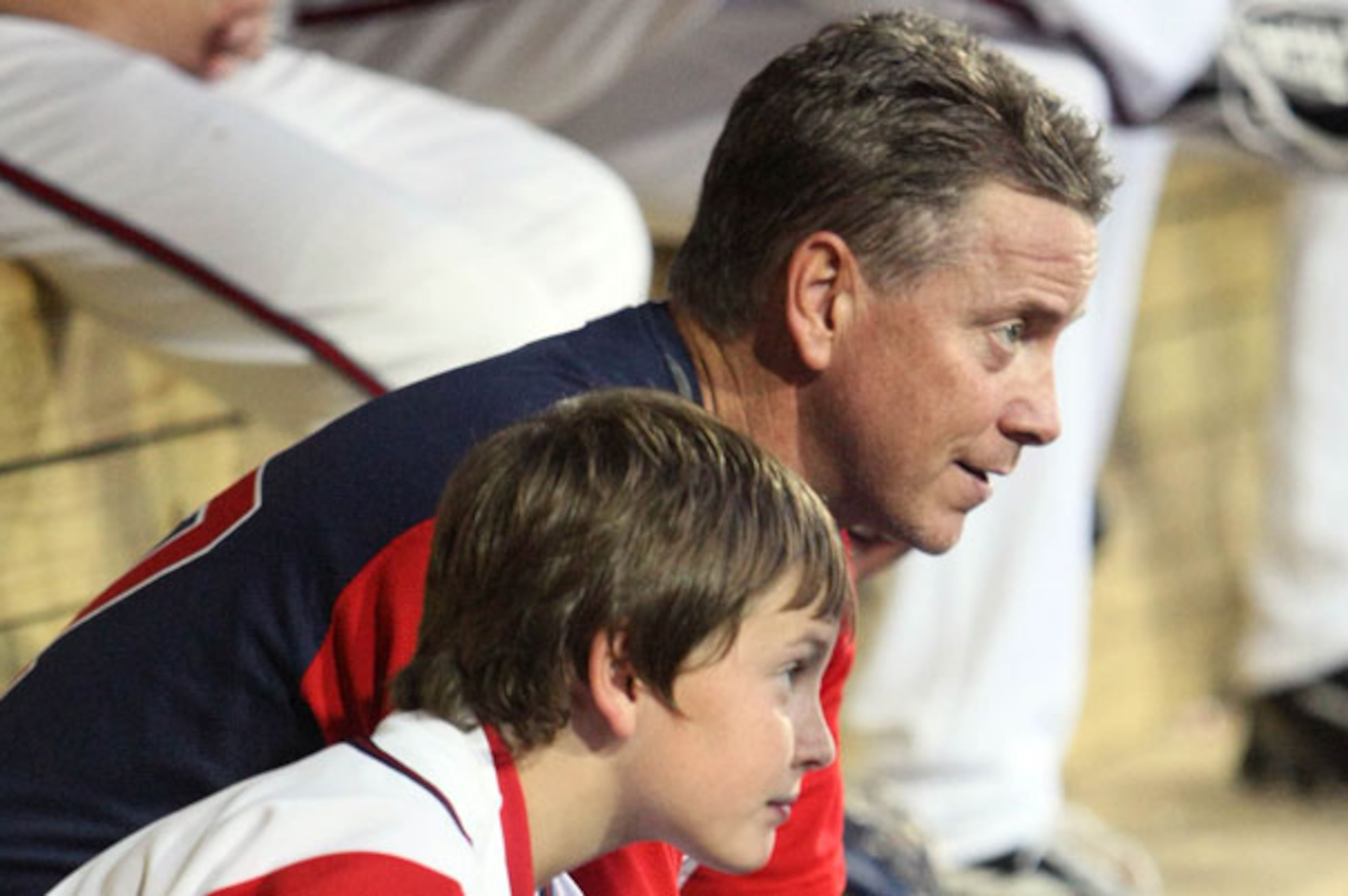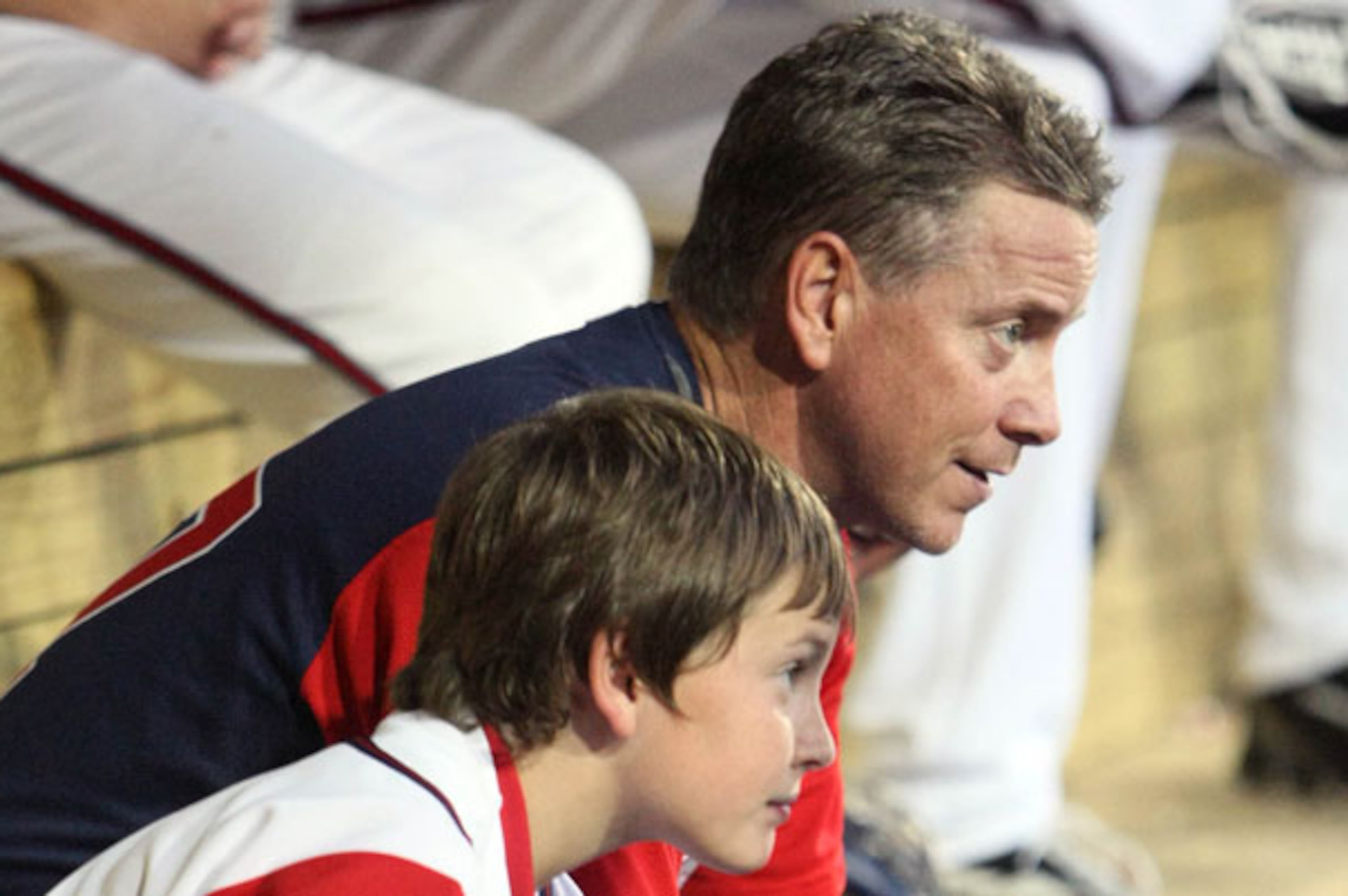Posey injury hits home with Braves, McCann
When Giants catcher Buster Posey took the jarring hit from Marlins outfielder Scott Cousins last week that broke his leg and cost him the rest of the season, Giants fans weren’t the only ones cringing. The play at the plate hit a little close to home for the Braves, too.
The Braves run the risk of losing their own cleanup hitter and one of their more valuable players in five-time All-Star catcher Brian McCann.
“You’re in such a vulnerable spot as a catcher,” said McCann, who broke into the majors in 2005 after Johnny Estrada suffered a concussion in a home-plate collision.
“You don’t know if the guy is going to slide or run you over,” McCann continued. “If you turn and make a tag and he runs you over, you’re going to get crushed. If you brace for somebody to run you over and then they slide, they’re safe. It’s just a tough play.”
McCann faced a situation eerily similar to Posey’s in late May 2006 in a game in Arizona. With McCann’s left leg exposed to block the plate, like Posey’s was on May 25, Eric Byrnes plowed into him.
McCann’s leg went numb. He had to be helped off the field by trainers. He thought his season was over. He was fortunate it was only a high ankle sprain, and he had a short stint on the disabled list, but it affected him the rest of the season.
McCann said from that point on, he changed how he sets up on plays like that. “On a throw from right [field], I move my foot up the line and play the ball, and I don’t leave my foot there [protecting the plate],” McCann said. “If the ball is up the line, I’m taking my whole body with me.”
McCann tries to protect himself where baseball rules don’t. In college and high school, base runners are required to slide into home plate to avoid a potential collision. It remains to be seen if Major League Baseball adopts such a rule.
“I’m a catcher,” McCann said. “If they did, I wouldn’t be all upset about it.”
In the fallout from Posey’s injury, Posey, his agent and Giants manager Bruce Bochy have all lobbied for a rule change. But the rest of Major League Baseball might not be so eager to adjust, not even Braves backup catcher David Ross, who suffered a concussion on a collision at the plate in 2007 when he was with the Reds.
“I’m up in the air about that,” said Ross, who couldn’t remember 12 hours of that day in August 2007. “Do I want to get run over at the plate? No, I’m not an idiot. But I also feel it’s part of what I signed up for.
“Pitchers can get line drives back at them and hit off their head or hit off their face or back. Should we all of a sudden change the bats? This is a dangerous sport, and that’s part of what you signed up for.”
Earlier this week, Oakland Athletics general manager Billy Beane revealed that he has told his catcher Kurt Suzuki not to block the plate when there’s a chance of a big collision, to employ a swipe tag instead.
Braves general manager Frank Wren prefers to leave it to McCann’s discretion.
“When a game is on the line, sometimes you’re going to have to stand in there,” Wren said. “And there are going to be other times when it’s prudent to maybe leave some plate open and try to make a swipe tag. You’ve just got to be smart about it. Mac is smart back there.”
Wren said he didn’t lobby for rule changes when McCann got hit in Arizona, and he doesn’t plan to now. But he can understand the need for discussion. He expects to see this topic on the agenda at the annual general managers’ meetings in November.
“We can live to play another day with a run scoring. We may not if we lose our catcher,” Wren said. “It’s what San Francisco is experiencing right now. So I don’t think there are any easy answers to that one because there are very good arguments from both sides.”
Braves manager Fredi Gonzalez, for one, doesn’t want to see the rule change because he thinks it will give catchers too big of an advantage if the runner has to slide. But he said if a play at the plate is dirty, with a runner using an elbow to the face or a helmet to the head, he can see the value in Major League Baseball fining players after the fact, like the NFL does with helmet-to-helmet hits.
When asked if he agreed with that, Wren answered simply that he didn’t know.
“I honestly don’t know what the right answer is,” said Wren, who has watched his twin sons Kyle and Colby play baseball in high school and at Georgia Tech with a slide-only rule. “I don’t think it takes away from the game. But at the same time, that’s a play that people have made their reputations on — the Mike Scioscias and the Steve Yeagers — that you were going to have to go through them to score. Obviously the Pete Rose and Ray Fosse play from the ’70 All Star game — those are big plays.”
Rose collided with Fosse to score the winning run for the National League that year, injuring Fosse’s shoulder. And that was an exhibition game. Fosse told the San Francisco Chronicle last week that he felt for Posey and called Cousins’ take-out play “unnecessary.”
But he also didn’t advocate changing the rules. “The game has been around more than 100 years, and now they’re going to start protecting catchers?” Fosse said. “... If the catcher has the ball and he’s standing there, the runner has to stop? Is that the protection? I can’t believe anything can be done, and I don’t see how you could regulate something like that.”


